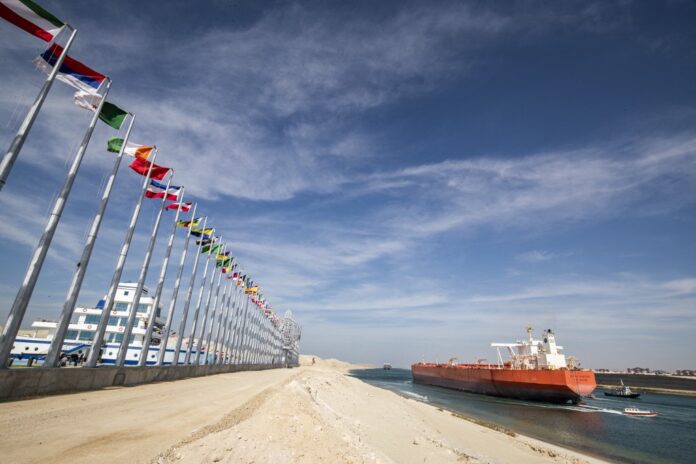RIYADH: Oil prices extended their gains on Thursday due to growing fears of further sanctions on Russia that could hit already narrowed supplies.
Brent futures were up about 45 cents, or 0.4 percent, at $122.05 a barrel, while the US West Texas Intermediate futures were up about 15 cents, or 0.2 percent, at $115.07 a barrel.
NATO meeting holds the key
Amid looming uncertainties surrounding oil prices, all eyes are now on NATO meetings in Brussels today, where Joe Biden and other world leaders will discuss punishing Moscow with further sanctions for invading Ukraine.
Meanwhile, the EU is still debating on a possible Russian oil embargo.
Suez Canal hikes transit fee for oil tankers
Egypt’s Suez Canal Authority said on Tuesday it will temporarily increase a surcharge levied on laden crude oil tankers and petroleum products tankers transiting the canal in both directions to 15 percent of normal dues from 5 percent, effective May 1.
It said that ballast crude oil tankers and petroleum products tankers transiting the Canal in both directions are still required to pay a surcharge of 5 percent of normal transit dues.
The surcharge levied on laden and ballast liquefied petroleum gas tankers, chemical tankers and other liquid bulk tankers will be also increased to 20 percent of normal transit dues, from 10 percent previously.
Union workers at Chevron’s Los Angeles refinery ratify the contract
Union workers at Chevron Corp’s Los Angeles refinery in El Segundo, California, ratified the US oil producer’s last, best, and final contract offer on Wednesday, a local union official of United Steelworkers, or USW, said.
The ratification at the southern California refinery comes as USW members at the company’s San Francisco Bay-area refinery in Richmond remained on strike for a third day after twice rejecting a similar contract proposal.
“We have negotiated in good faith for months to reach a mutually acceptable agreement with our employees who are represented by the USW Local 675,” Chevron spokesperson Tyler Kruzich said, adding the company was pleased by the ratification.
Indonesia, Malaysia commit to biodiesel mandates
Top palm oil producers Indonesia and Malaysia remain committed to their mandatory biodiesel programs despite higher prices of the feedstock to reach green energy goals, senior officials said on Thursday.
Indonesia and Malaysia use palm oil as a blending for biodiesel, with Indonesia since early 2020 using a mandatory B30 — a biodiesel variant containing 30 percent of palm-based fuel — the highest mandatory mix in the world, to slash imports of diesel fuel.
Indonesia’s palm-based fuel program “will not stop at B30,” Coordinating Minister for Economic Affair Airlangga Hartarto, told a virtual industry conference.
He said Indonesia was working to use palm oil in its diesel fuel, gasoline, and jet fuels.
(With inputs from Reuters)

